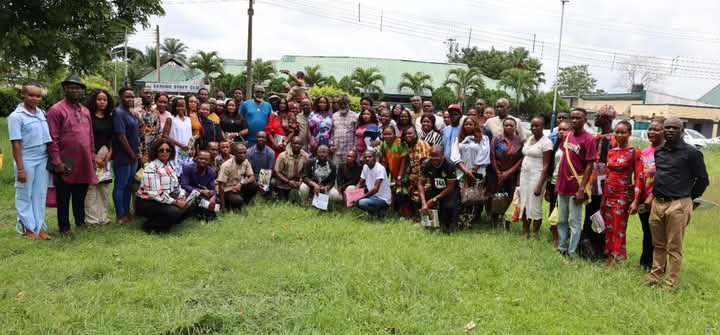As part of its ongoing commitment to empower Ogoni youths with high-demand skills, the Hydrocarbon Pollution Remediation Project (HYPREP) has commenced the training of 100 beneficiaries in Creative Arts—one of the four specialized areas under its sustainable livelihood programme.
Speaking at the Centre for Research in African Performing Arts (CRAB), Theatre Arts Department, University of Port Harcourt, HYPREP Project Coordinator, Nenibarini Zabbey, represented by the Director of Technical Services, Damian-Paul Aguiyi, said the initiative is in line with the Project’s pledge to add value and deliver relevant skills to Ogoni youths.
He noted that HYPREP’s strategic partnership with the renowned Theatre Arts Department of the University of Port Harcourt ensures high-quality training delivery.
Zabbey expressed optimism that the training could lead to the emergence of “OGONIWOOD”—a budding creative industry in the region—and assured that participants would be equipped with the necessary talents to thrive in the entertainment sector.
Outlining the programme and training guidelines, the Heads of HYPREP’s Sustainable Livelihood Programme and the Theatre Arts Department, Josephine Nzidee and Ovunda Ihunwo respectively, revealed that the four-month training will be largely practical. Modules will cover areas such as film production techniques, acting, scriptwriting, and makeup artistry.
They added that trainees will receive hands-on, industry-based experience and will be mentored by top professionals in Nigeria’s movie industry.
Beneficiaries, who praised the transparency of the selection process, expressed gratitude to HYPREP and pledged to make the most of the opportunity.
Aside from the Creative Arts training, HYPREP has already trained 30 Ogoni youths in aviation and has commenced seafaring training for another 100 at the Charkin Maritime Academy. The final specialized skill area—Mechatronics—will begin soon.
Through these efforts, HYPREP is steadily fulfilling its promise to equip Ogoni youths with specialized, market-relevant skills for long-term economic empowerment.















